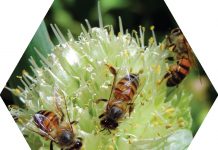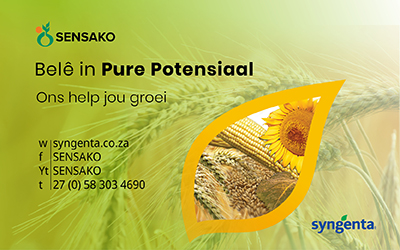Every season, for every field, a producer must make many key decisions – all of which can make or break a harvest. Many of these decisions relate to crop protection, because at every stage of the growing season, plants are at risk from weeds, insects and disease.
Crop protection options available to producers today, are more sustainable than at any previous point in history. The herbicide glyphosate has been instrumental in enabling producers to protect yields and boost food security. Glyphosate-based Roundup™ products have been used safely and successfully for over four decades worldwide. They are a valuable tool to help producers deliver crops to markets and practice sustainable farming by reducing soil tillage, soil erosion and carbon emissions.
Safe to use
Over the years, many scientists have conducted studies and field research with glyphosate-based herbicides and published their results in peer-reviewed scientific journals – more than 880 scientific studies are available. The overwhelming consensus is that glyphosate, when used properly according to the recommendations, poses no adverse effects to people, wildlife or the environment.
Glyphosate inhibits an enzyme that is essential to plant growth. This enzyme is not found in humans or animals, contributing to the low risk to human health. Comprehensive toxicological studies in animals have demonstrated that glyphosate does not cause cancer, birth defects, DNA damage, nervous system effects, immune system effects, endocrine disruption or reproductive problems.
Recently the United States Environmental Protection Agency (US EPA) released their proposed interim registration review decision for glyphosate – an important step in the registration review process in the United States (US). Consistent with the conclusions of science reviews over 40 years, the US EPA reaffirmed that glyphosate poses no risks to public health when used in accordance with the label.
Glyphosate has been approved for use in more than 160 countries. The EPA announcement is just the latest instance of a global regulatory agency reaffirming that glyphosate is not carcinogenic, following similar findings by multiple leading regulators around the world.
In January 2019, Health Canada concluded that ‘after a thorough scientific review’, concerns about glyphosate safety ‘could not be scientifically supported when considering the entire body of relevant data’. Health Canada also noted that the 20 scientists who conducted the review, who had not been involved in its 2017 re-evaluation of glyphosate, ‘left no stone unturned’ and ‘had access to all relevant data and information from federal and provincial governments, international regulatory agencies, published scientific reports and multiple pesticide manufacturers’. Health Canada lists 1 300 studies in its reference list relating to its 2017 re-evaluation of glyphosate, which supported its determination that glyphosate-based herbicides can be used safely. Similarly, EPA’s 2017 cancer risk assessment included 121 studies that it considered relevant – 90% of which were sponsored by parties other than Monsanto. The European Food Safety Authority (EFSA) noted in 2017 that its 2015 assessment listed 700 scientific references alone in the area of mammalian toxicology.
A US health study, which involved tracking 44 932 glyphosate applicators from the 1990s through to 2013, concluded that there was no association between glyphosate and cancer. ‘In this large prospective cohort study, no association was apparent between glyphosate and any solid tumours or lymphoid malignancies overall, including NHL and its subtypes.’ (JNCI, 2018)
Local assessment
In South Africa the regulatory system is rigorous, accountable and has ensured robust management of the sector over years. All herbicides, including glyphosate, are rigorously tested and then reviewed by third-party scientists at government agencies. All substances and finished products undergo extensive evaluation and testing in the interest of product safety. The possible health and environmental risks along the entire value chain are assessed and these results are used to derive appropriate measures to mitigate risks. Roundup is one of the most trusted brands in a variety of cropping systems and forms part of most integrated weed management programs in many cropping systems.
For more information on Roundup, visit https://www.bayer.com/en/glyphosate-roundup.aspx
For more information on the Roundup litigation, visit http://www.glyphosatelitigationfacts.com/main/
References
- Andreotti, G, Koutros, S, Hofmann, JN, Sandler, DP, Lubin, JH, Lynch, CF, Lerro, CC, De Roos, AJ, Parks, CG, Alavanja, MC and Silverman, DT. 2018. Glyphosate use and cancer incidence in the agricultural health study. JNCI: Journal of the National Cancer Institute, 110(5), 509 – 516.

Grain SA/Sasol photo competition
– Engela Liesching, 2011

















